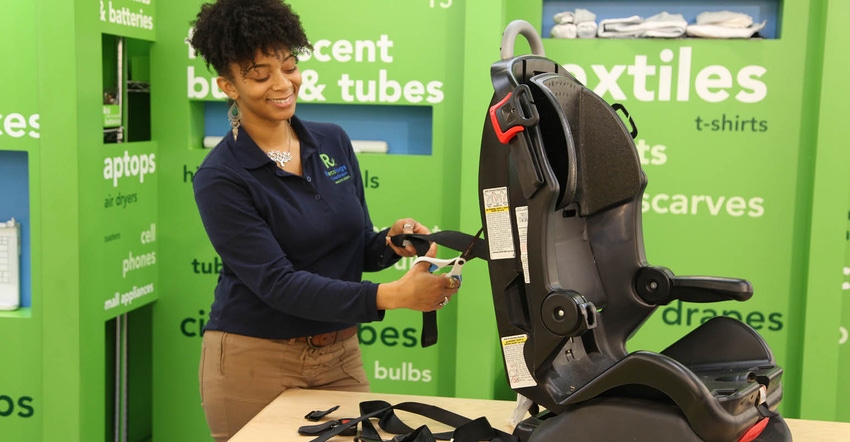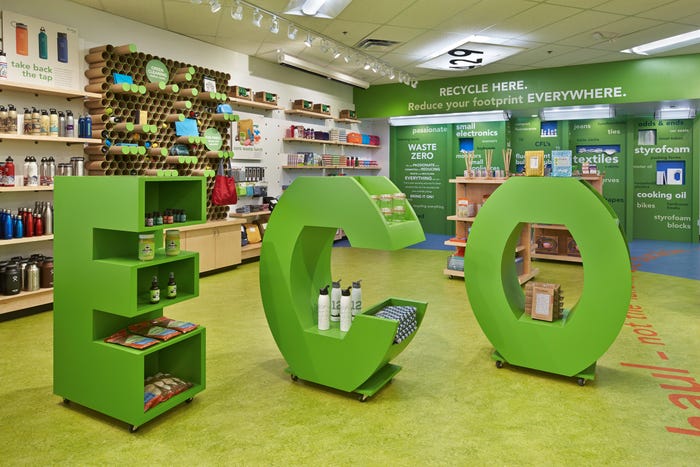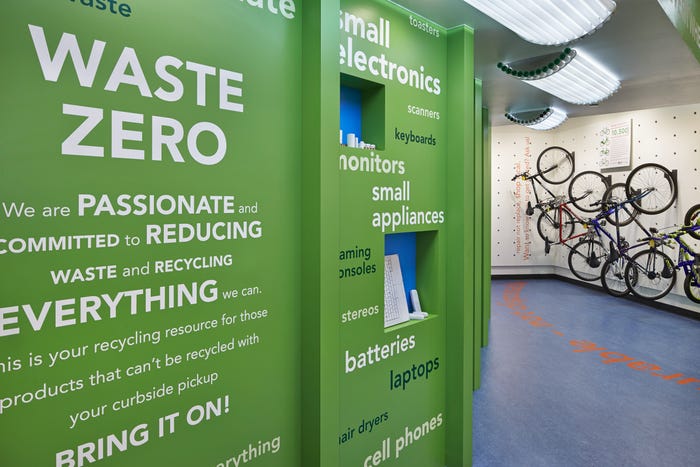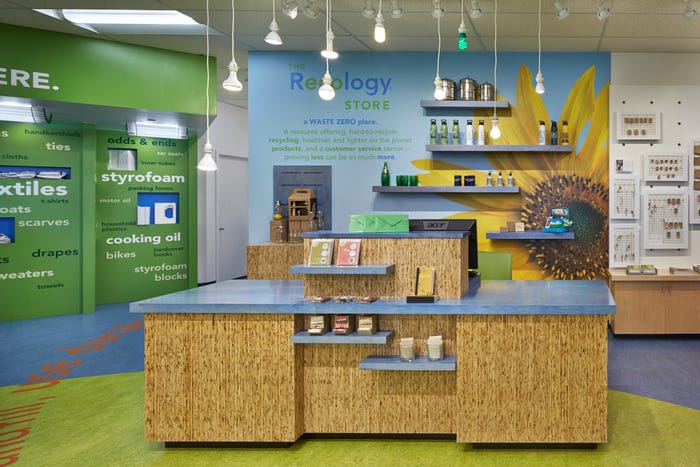How Recology CleanScapes’ Retail Stores Promote Recycling and Reuse
Recology CleanScapes' multipurpose retail stores promote the type of thinking and behavior that it wants its customer to have, which is a zero waste lifestyle.

Nearly five years ago, Recology CleanScapes, one of Recology’s operating companies that serves communities in the State of Washington, was tasked with developing a physical location in the city of Issaquah where customers could pay their bills and drop off hard-to-recycle items. But instead of simply creating a customer service and drop-off center, the company built a multipurpose retail store that promotes the type of thinking and behavior that it wants its customer to have, which is a zero waste lifestyle.
“When we were asked by the city of Issaquah to create a physical location, we saw an opportunity to develop a place where we could educate customers and sell durable, recyclable and upcycled products in addition to providing customers with a place to pay their bill and drop off hard-to-recycle items,” says Kevin Kelly, general manager of Recology CleanScapes.
Recology CleanScapes launched its first retail store in 2013 and has since opened up three more stores in other communities that it serves. Each store is staffed with recycling experts and equipped with sustainable product offerings, a designated drop-off spot for materials collection and an area for educational learning.

Most of the stores’ product offerings come from locally sourced vendors within the state or the greater U.S. and are made from recycled items like bike tires, glass and wine bottles. The stores used to primarily sell gift-type products, but they are now stocked with more every day-use items like home goods.
“In our stores, customers can find a wide range of sustainable products that can replace the disposable items in their homes, such as reusable plastic bags, reusable containers, zero waste lunch kits, reusable supplies, wax cloths, green cleaning supplies and more,” says Quinn Apuzzo, zero waste manager of Recology CleanScapes. “All of the products are selected with the intent that they will be producing zero landfill waste, and our goal is to try and get our customer base to think about purchasing and using products made from recycled goods so that they can live a more zero waste lifestyle.”

On the other side of the spectrum, the stores’ takeback center functionality allows customers to drop off hard-to-recycle items that cannot be picked up at the curb, such as bicycles, batteries, textiles, cooking oil, Styrofoam, light bulbs that contain mercury and electronics. All of the materials that are dropped off at the stores are brought to end-market recyclers for recycling and reuse purposes.
“One of the partnerships that we are really excited about is our partnership with the City of Seattle, King County, Wash., and nonprofit organization Bike Works,” says Kelly. “Through the partnership, we have developed a program for refurbishing old bicycles so that they can be sold in our stores or donated to other countries. This program not only allows us to do something good, but it also allows us to keep functional bicycles out of landfills.”

The third portion of the stores, the educational learning areas, provide customers and groups like Boy Scouts and Girl Scouts a place to learn about how to properly recycle or dispose of items that aren’t accepted at the curb or in stores such as paint.
“We staff all of our stores with recycling experts so that customers can learn how to recycle or dispose of items properly, how our product offerings can replace their disposable, every day-use items, how they can contribute to the circular economy and more,” says Erin Harbour, retail sales manager at Recology CleanScapes. “In addition to the educational efforts in our stores, we do educational outreach at farmer’s markets and other events within our communities.”
While Recology CleanScapes currently has four retail locations, more are in the works. The company is looking to switch up its product mix and offer more creative products. Different communities look for different things, but the demand for sustainable, every day-use items is apparent at every one of Recology CleanScape’s retail locations.
“As we prepare to open up more stores, we are exploring new product offerings, looking into how we can get our customers to live a more zero waste lifestyle and figuring out how we can give customers more of a reason to visit our stores on a regular basis,” says Kelly. “The possibilities are endless, and I am excited to see where the future takes us.”
About the Author(s)
You May Also Like




